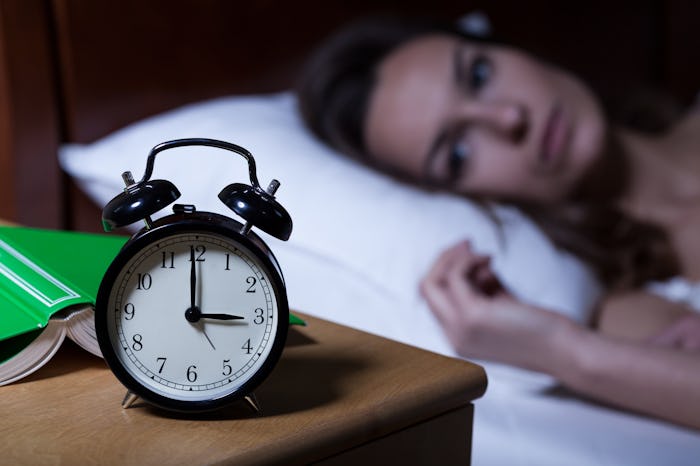Life

How To Cope With The End Of Daylight Saving Time If You Have Insomnia
Even the soundest sleepers can be thrown off for a few days when the time changes. Readjusting your body and mind to the new hours tends to irritate almost everyone. However, there is a part of the population for whom the time changes can be exceptionally difficult: people who suffer from insomnia. And if you're one of those people, you need to know how to cope with the end of daylight savings time if you have insomnia, because you certainly deserve a decent night's rest.
First, it's important to note that insomnia is no laughing matter. According to the Mayo Clinic, insomnia is a disorder that causes people to have trouble falling or staying asleep, and it can be a freestanding problem or the result of another ailment or medication. And it may affect more people than you realize. Although everyone has the occasional bad night's rest, an estimated 10 percent of Americans struggle with chronic insomnia, according to the American Academy of Sleep Medication. And when every night of sleep requires a delicate balance of behaviors and (possibly) medications, the end of DST can be quite the ordeal. Fortunately, people with insomnia can follow three main tips to help maintain their sanity during this darker part of the year and rest easy.
Lighten Up
OK, this is not just glib advice. According to Health, using light therapy boxes, especially those that utilize blue light, may help you combat the afternoon grogginess. Light boxes are already familiar tools for people who cope with seasonal depression, and they can also help insomnia sufferers perk up in the afternoons by providing a good dose of light. To be on the extra-safe side, you can work with your doctor to find a box and routine for it specifically tailored to your needs. On the other hand, getting enough exposure to natural light during the daytime may also help you adjust to the new schedule more readily.
Keep Up Your Sleep Routine
As explained in CBC News, people with insomnia can get thrown off of their normal sleep routine by these time changes. And for many insomnia sufferers, that routine is crucial for maintaining good sleep hygiene. As CBC further noted, it's a good idea for insomnia sufferers to go to bed at the same time and possibly score an extra hour of sleep instead of trying to stay up later just because of what the clock says. By the time Monday morning rolls around, that extra hour may make all the difference.
Maintain Good Sleep Hygiene
If you've had to deal with insomnia for any length of time, then you just might be sick of the term "sleep hygiene" by now. But it's harped on by sleep experts for a reason. According to the National Sleep Foundation, good sleep hygiene involves steps such as avoiding naps, limiting caffeine and alcohol intake, and getting enough exercise in the morning or early afternoon. Although it may not be the most exciting thing in the world, proper sleep hygiene may help you adjust to the new time shifts with relatively few problems.
This article was originally published on